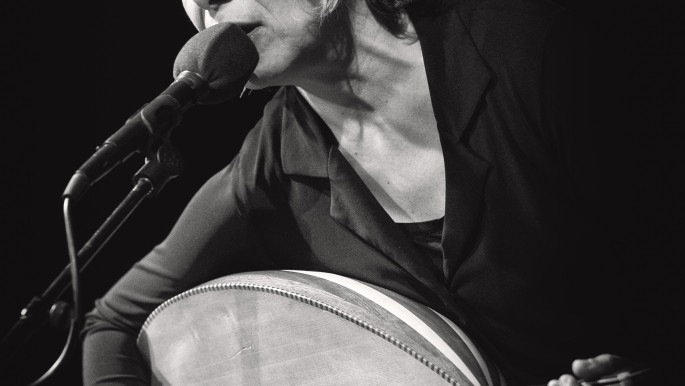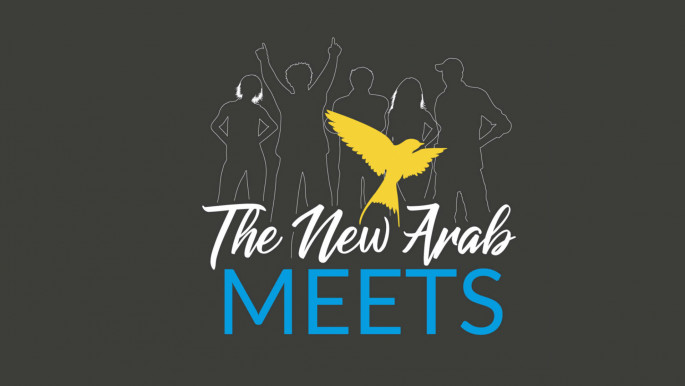Kamilya Jubran: The innovative Palestinian musician on 'Wa', her most ambitious album to date
Palestinian singer-songwriter Kamilya Jubran is no exception. Hailing from Al-Rameh, a Palestinian village situated in the Galilee, she had a rich musical heritage growing up, with a father who was a music teacher and made traditional instruments.
Having not played on UK shores since 2017, it was especially gutting for her admirers that she wasn't able to promote her new album Wa, a collaboration with her long time musical partner Werner Hasler, released in November last year, which she describes as being "a rich exchange between him and me".
They started working together upon Kamilya's arrival in Paris in 2002, where she has been based ever since. Subsequently, they have worked on various projects, including the Wameedd and Wanabni albums released in 2008 and 2010 respectively.
Read more: Remembering 'The Lady' of Cairo Umm Kulthum 45 years on
"We tried to go further with this album. Thanks to all these years we've worked together, we tried to create another universe of sound and we wished to present those sounds in the form of a suite," Kamilya told The New Arab.
"And this way of thinking allowed us to work on the links of energies. And once those energies transform, they become another thing. So this process through time is what is different about this Wa project," she added.
 |
Kamilya Jubran's career features an illustrious and varied back catalogue of innovative and classical works that spans three decades |  |
"In terms of the idea, it is something that only really existed in classical music, be it Arabic or even European," she told TNA.
"When we started to play Wa in some Arab cities, I noticed the astonishment of the audiences, because it reminded me of the reaction back when we played the Wameedd record."
And with all of that going on, Kamilya insisted that this is probably her most ambitious and innovative project to date, given how much it pushes the envelope sonically and musically.
"Well seeing as this is my latest, then yes!" Kamilya joked. "I hope that this doesn't mean that things don't stop there. It's just a matter of time in terms of the amount of work that will come up," she said.
 |
|
| Kamilya Jubran has a rich musical heritage |
"For example, I have worked with Sarah Murcia, a double-bass player from Paris with whom I've collaborated with for many years. We have a lot of music to write for a new project, we have just started to put down some basic ideas and this will be performed next year. So this is well underway. Things don't stop, they just go ahead!"
Sadly, previewing the new album in the UK will have to wait for a later date, as the global Covid-19 pandemic continues to force artists to cancel and put the world into a temporary lockdown. Much to the dismay of Kamilya.
"I worked with MRSM, who are Arab music promoters in the UK," Kamilya explained. "We had three dates confirmed with one Q+A before the tour. MRSM is a cultural platform that promotes innovative music projects from artists in the MENA region," she said.
"We worked hard over several months to make this happen, but unfortunately, everything is now delayed until it's better to play shows again."
But what does this mean for artists that will now be severely impacted by not being able to tour?
"I think everybody's in the same situation, aren't they? It's not just artists!" laughed Kamilya. "But I think for us musicians, all scheduled dates - even until December – it's probably not going to happen. But I'm hoping that things will be back in order soon."
Looking back through Kamilya's career, it has been an illustrious and varied back catalogue of innovative and classical works that spans three decades.
With that in mind, she has a lot to sift through regarding what she thinks is her best work, whilst also being quite coy and candid simultaneously.
Read more: How Juliana Yazbeck is modernising traditional Arabic sounds with politically-conscious lyrics
"I'm lucky to have met partners with whom I can think, exchange and do what I want to do in their presence. And this is a real gift in my life. So I'm content with the projects I've made with Werner, Sarah - with whom I've made two records sounds different to what I do with Werner – I'm the same person but I have lots of possibilities in creating wide space for expression. That's what makes me feel happy!"
By being based in Europe, more space opened up for Kamilya to express herself musically than it perhaps would have done had she stayed in Palestine.
"Definitely. I mean it's known historically that people in artistic domains need to move in order to enrich the way we look and hear different things. My move to Europe exposed me to many things to learn and also to find different sources of inspiration in my writing."
While that might be the case for many artists, in recent years others have done exactly the opposite, and looked more towards the Middle East region for inspiration, rather than Europe or America.
For some it is about finding their voice, for others it is borne out of political oppression.
"I think we cannot ignore the importance of the internet because this digital world became a new tool of living, crossing borders, meetings – when previously they weren't allowed or possible - and communication," she told TNA.
 |
It's known historically that people in artistic domains need to move in order to enrich the way we look and hear different things |  |
"The enhancement of the tech world in regards to the inventions of machines and technical equipment that is accessible to everyone today. Without judging or evaluating the quality of artists, its another era – a digital era. In terms of the rapidity, everything is so quick."
|
|
||
When Kamilya is not involved in her own personal music projects, she works on her non-profit organisation, Zamkana.
Set up in Paris in 2014 with a group of friends, it aims to support artistic projects to encourage original,innovative material, and foster freedom of expression and secularism.
Zamkana also offers artists the means to realise their projects with the help of its network of expertise, from the design phase to the implementation phase."The idea of Zamkana came to me when I felt that I wanted to reach out to the younger generation that wanted to perform music and arts in general basically," Kamilya reminisced.
"The idea is to listen to what this generation does and ask them questions, as well as accompany them if it's possible or useful to them to think further towards their own musical projects, to ask themselves questions. Invite them to criticism. To openness."
Yousif Nur is a journalist who writes freelance for various publications including the Guardian, Dazed and Confused and Notion Magazine. He writes mostly about music
Follow him on Twitter: @yousifnur
Read more from The New Arab Meets special section below:
 |
|





 Follow the Middle East's top stories in English at The New Arab on Google News
Follow the Middle East's top stories in English at The New Arab on Google News


